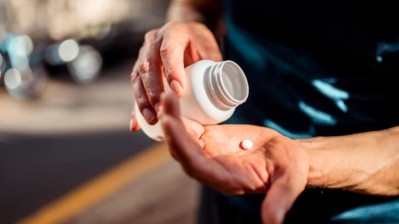NOW offers roadmap to help consumers confidently navigate supplements

According to natural products manufacturer NOW, companies can do more to help educate consumers about trusted brands and boost confidence in the products they purchase. Results from a recent consumer survey commissioned by the company revealed that 98% of respondents cited concerns about supplement effectiveness, safety and quality as barriers to purchase.
"The supplement aisle is certainly overwhelming, and pretty labels and clever marketing stand out, but you have to go beyond that flashy stuff and do a little homework,” said DJ Blatner, NOW wellness expert and registered dietitian nutritionist (RDN). “Brand matters when it comes to supplements, and the goal is to choose brands that are transparent in how they test for quality, purity and safety. You want to choose a brand that ensures what’s on the label is actually in the bottle and nothing else."
She added that despite claims that the supplement industry is unregulated, there are federal regulations and laws in place that supplement manufacturers must follow to manufacture safe products, highlighting that trusted brands meet (and often exceed) these requirements and offer full transparency to their consumers.
How can supplement companies inspire confidence in the marketplace? Blatner said that there are certain things consumers should be looking for in trusted and quality brands:
- This may sound obvious but avoid supplements that make outlandish claims. Supplements are not magic bullets, and if it sounds too good to be true, it probably is, she said. Claims should be substantiated by scientific data.
- On the label or company website, look for GMP and third-party certification logos (Informed Sport, USDA Organic, etc.). Good Manufacturing Practices are established by the U.S. Food and Drug Administration (FDA). Informed Sport ensures finished products are free from WADA’s 200+ banned substances.
- Look for brands that use some trademarked ingredients, usually called out on the label or ingredient panel. Trademarked (or branded) ingredients can support product credibility, safety and efficacy since the ingredient supplier has already done the research and can clinically validate the health and label claims. Blatner added that companies should be listing all ingredients individually and by strength/potency instead of just listing general "proprietary blend".
- Find companies that share detailed information about their quality control and product testing on their websites or other platforms. Blatner said that NOW conducts over 19,000 tests per month from raw ingredients to finished products in its labs. All ingredients are routinely tested for identity, purity, potency, heavy metals, pesticides and agricultural chemicals and possible pollutants, including pharmaceuticals. Labs should be third-party accredited to ensure the purity and potency of ingredients.
- Purchase from reliable sources, whether in store or online. Purchasing directly on the manufacturer’s website or from a certified retailer like a grocery store, health food store or big box store can provide quality assurance.
- Ensure credible and qualified third-party experts stand behind the brand/product. "If a brand says products were formulated by credible experts, ensure they share the proof of that," Blatner said. "Do research to confirm any experts promoting the brand on social or other channels are legit and carry meaningful credentials within the health and wellness space."
Other industry organizations have also taken steps to give buyers more control over their purchasing decisions. Since 2019, CRN’s Label Wise campaign has helped consumers read and understand supplement labels.








